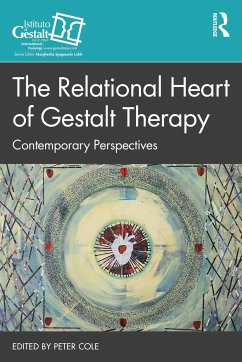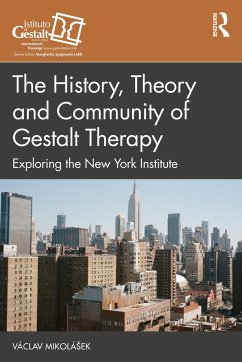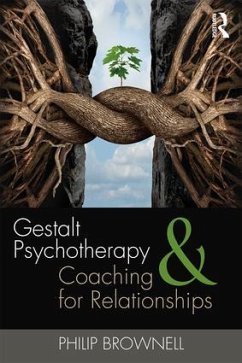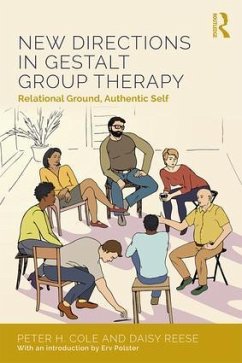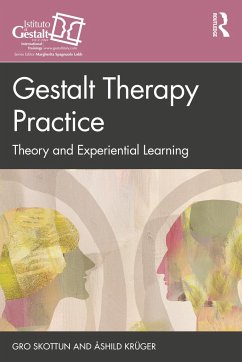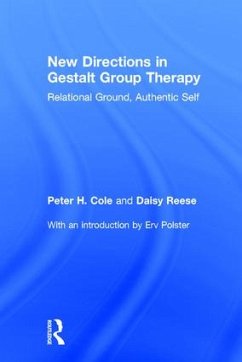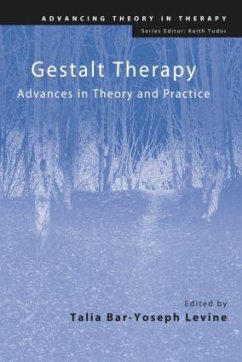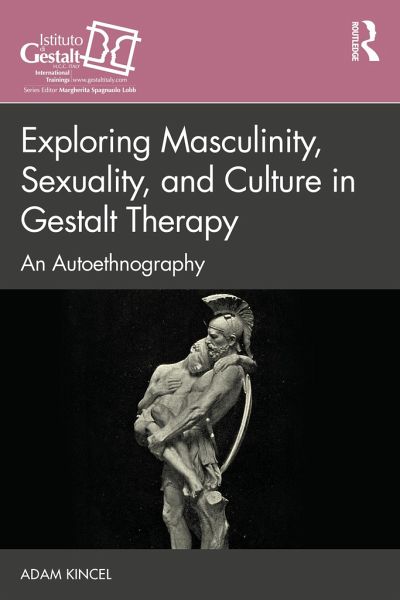
Exploring Masculinity, Sexuality, and Culture in Gestalt Therapy
An Autoethnography
Versandkostenfrei!
Versandfertig in 6-10 Tagen
37,99 €
inkl. MwSt.
Weitere Ausgaben:

PAYBACK Punkte
19 °P sammeln!
Exploring Masculinity, Sexuality, and Culture in Gestalt Therapy is an invitation to explore social and political issues within the psychotherapeutic framework. It describes and analyses the author's journey of becoming a gestalt therapist in Poland and England through analyses of masculinity, sexuality, relationality, and culture.This book addresses the collective gestalts exploring the psychotherapeutic taboos of sexual transference, same-sex attraction, use or lack of touch, gender equality, and inter-cultural conflicts. Each chapter is an exploration of prejudices embedded in our cultures ...
Exploring Masculinity, Sexuality, and Culture in Gestalt Therapy is an invitation to explore social and political issues within the psychotherapeutic framework. It describes and analyses the author's journey of becoming a gestalt therapist in Poland and England through analyses of masculinity, sexuality, relationality, and culture.
This book addresses the collective gestalts exploring the psychotherapeutic taboos of sexual transference, same-sex attraction, use or lack of touch, gender equality, and inter-cultural conflicts. Each chapter is an exploration of prejudices embedded in our cultures and therapeutic work, and provides a theoretical challenge to current practices within gestalt therapy and beyond. The author advocates for a more collective understanding of embodied sensations emerging in the therapeutic context as collective gestalts.
Through the use of autoethnographic research methodology, this book shows how personal embodied experiences are intertwined with the social, political, and material context. It is essential reading for gestalt therapists, as well as readers interested in gestalt approaches.
This book addresses the collective gestalts exploring the psychotherapeutic taboos of sexual transference, same-sex attraction, use or lack of touch, gender equality, and inter-cultural conflicts. Each chapter is an exploration of prejudices embedded in our cultures and therapeutic work, and provides a theoretical challenge to current practices within gestalt therapy and beyond. The author advocates for a more collective understanding of embodied sensations emerging in the therapeutic context as collective gestalts.
Through the use of autoethnographic research methodology, this book shows how personal embodied experiences are intertwined with the social, political, and material context. It is essential reading for gestalt therapists, as well as readers interested in gestalt approaches.





